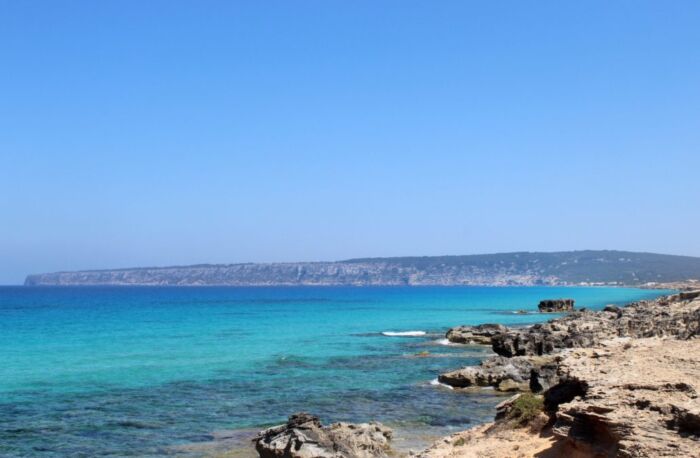
Formentera, the smallest island in the Balearics, a renowned glamorous destination for Italian holidays, has for years been committed to protecting and safeguarding its natural environment and pursuing an eco-sustainable tourism model through important practices and awareness-raising projects.
The destination characterized by enchanting Mediterranean landscapes, breathtaking beaches and turquoise waters, wide pine and juniper forests, 32 nature trails leading to the sea, boasts an extraordinary biodiversity and a very varied flora and fauna with over 210 species of birds surveyed that have found here a favorable area to nest, permanently or as a stage of their long migratory journeys.
One of the most important practices implemented by the island is the commitment to preserve the Posidonia Oceanica meadows, a UNESCO World Heritage site for 20 years, which in Formentera are among the largest in the Mediterranean and guarantee the clarity and transparency of the waters of the ‘island. Posidonia is an endemic marine plant indispensable for the life of the fauna and marine flora and for the protection of the coasts, thanks to its great production of oxygen and organic matter.
For this reason, in 2017 the Save Posidonia Project was born, a fundraising program promoted by the Consell Insular de Formentera aimed at protecting and protecting the marine plant and raising awareness of the vital importance of these underwater meadows, “adopting” part of the 7,600 hectares that surround the island.
Moreover, every year in October, the island of Formentera hosts the Posidonia Forum, an event during which meetings, excursions and conferences are held on the theme of sustainability with major players in the sector to raise awareness on these issues and give the own contribution in defense of the environment.
For the protection of the island, of importance are the actions for the preservation of the Natural Park of Ses Salines, a perfect example of the richness of Mediterranean biodiversity, which also represents a resting and nesting area for migratory birds, besides being rich of Posidonia. This natural space includes a series of terrestrial and marine habitats of inestimable ecological value.
The Park, located in the northern part of the island, extends northwards, including the Marine Reserve of Es Freus, the second largest protected marine area in the Spanish Mediterranean created in 1999 in order to protect ecosystems, halt degradation of habitats, recover and repopulate species and areas at risk. It extends from shallow areas up to depths of over 60 meters and hosts a wide variety of underwater landscapes, particularly the Posidonia meadows (UNESCO World Heritage).
Throughout this area it is absolutely forbidden to anchor boats, underwater fishing, sport fishing of any kind and diving with an autonomous diving suit. In Can Marroig there is the Interpretation Center where activities are carried out to make the park known, in particular its flora, fauna and the heritage of the salt marshes.
There are also numerous recent environmental initiatives, including: the introduction of rules by the Consell Insular de Formentera to regulate the transit of vehicles within the island, aimed at reducing the pressure on local roads; the birth of the group of volunteers “Plastic Free Formentera”, which with the help of the Ministry of the Environment, undertakes to carry out redevelopment work on the beaches of the whole island; the campaigns carried out in schools to inform and educate the island’s citizens from an early age and to make future visitors aware of the fragility of the territory and of changes in the flora and fauna. For example, the organization of awareness days is important, such as the removal of stones stacked on the beaches by human intervention, as the scattered stones perform a fixation job, in addition to being the habitat of small plants, invertebrates and lizards.
With the Sustainable Formentera project, the island is constantly committed to protecting the environment, in order to create awareness of the importance of focusing on a sustainable tourism model that preserves the ecological and economic balance of the destination. Therefore the island is increasingly promoted as an active destination to be experienced practicing every type of sport, from biking to running to horseback riding along the 32 green routes, kayaking, water sports, diving, birdwatching and much more.